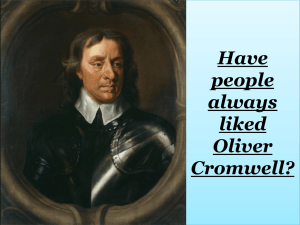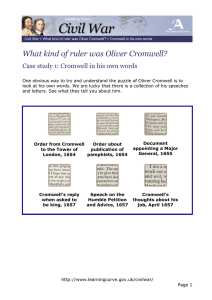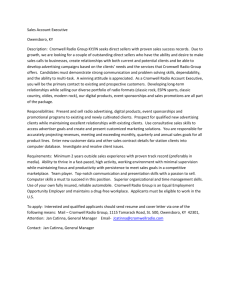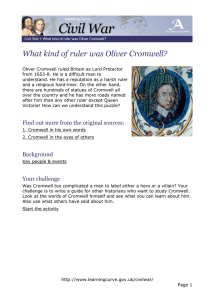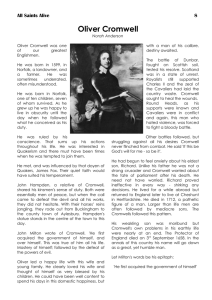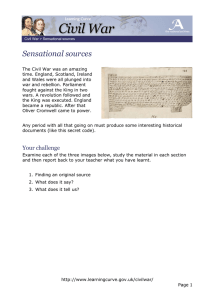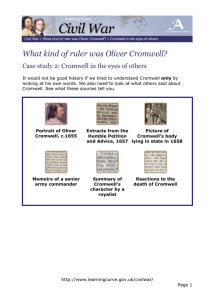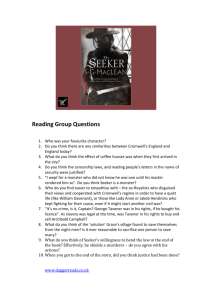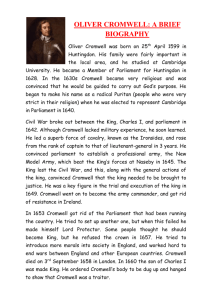What kind of ruler was Oliver Cromwell?
advertisement
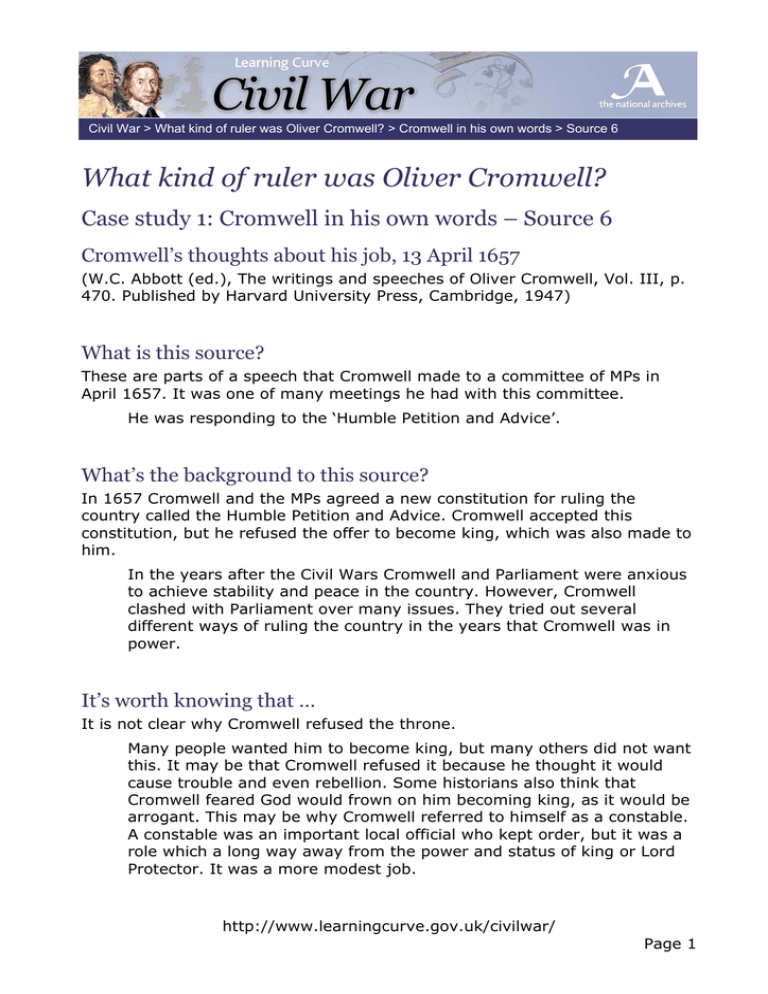
Civil War > What kind of ruler was Oliver Cromwell? > Cromwell in his own words > Source 6 What kind of ruler was Oliver Cromwell? Case study 1: Cromwell in his own words – Source 6 Cromwell’s thoughts about his job, 13 April 1657 (W.C. Abbott (ed.), The writings and speeches of Oliver Cromwell, Vol. III, p. 470. Published by Harvard University Press, Cambridge, 1947) What is this source? These are parts of a speech that Cromwell made to a committee of MPs in April 1657. It was one of many meetings he had with this committee. He was responding to the ‘Humble Petition and Advice’. What’s the background to this source? In 1657 Cromwell and the MPs agreed a new constitution for ruling the country called the Humble Petition and Advice. Cromwell accepted this constitution, but he refused the offer to become king, which was also made to him. In the years after the Civil Wars Cromwell and Parliament were anxious to achieve stability and peace in the country. However, Cromwell clashed with Parliament over many issues. They tried out several different ways of ruling the country in the years that Cromwell was in power. It’s worth knowing that … It is not clear why Cromwell refused the throne. Many people wanted him to become king, but many others did not want this. It may be that Cromwell refused it because he thought it would cause trouble and even rebellion. Some historians also think that Cromwell feared God would frown on him becoming king, as it would be arrogant. This may be why Cromwell referred to himself as a constable. A constable was an important local official who kept order, but it was a role which a long way away from the power and status of king or Lord Protector. It was a more modest job. http://www.learningcurve.gov.uk/civilwar/ Page 1 Civil War > What kind of ruler was Oliver Cromwell? > Cromwell in his own words > Source 6 Your turn: What can we learn from this source? 1. According to Cromwell, why did he end up as Lord Protector? 2. What was his attitude to being called either ‘King’ or ‘Lord Protector’? 3. Why do you think he refused the title of king? 4. Why did he compare himself to a constable? 5. Some critics accused Cromwell of greed and ambition. Does this source support that accusation? 6. What overall impression does this source give of Cromwell? Source 6 http://www.learningcurve.gov.uk/civilwar/ Page 2
